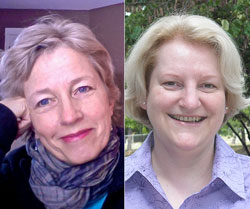Women With Addictions Report Reduced Anxiety After Group Music Therapy: A Quasi-Experimental Study
DOI:
https://doi.org/10.15845/voices.v13i2.681Keywords:
music therapy, addictions, anxiety, womenAbstract
Roughly six million females in the USA abuse or are addicted to alcohol. Women are more likely than men to report depression and anxiety as triggers for substance use and relapse, which emphasizes the importance of therapies designed to help women mitigate anxiety.
Research supporting music therapy (MT) with women with addictions is scarce. In this quasi-experimental investigation, we hoped to learn: (1) What percentage of women with addictive disorders in a 45-minute group MT session will report pre-session anxiety?; and (2) of these, what percentage will report a palpable reduction in their post-session anxiety? We used a single group design: Participants self-reported anxiety before and after each session.
Study participants were 53 women in a gender-specific residential program. Voluntary group MT sessions were held twice weekly for 9 weeks. Four MT methods were used: Composition, Receptive (Listening), Improvisation, and Re-Creative (Performing). Of 53 first-session surveys, 39 (73.6%) indicated pre-session anxiety. Of these, 33 (84.6%) showed a reduction in post-session anxiety. A sign test confirmed an overall reduction in anxiety.
Outcomes may have been related to interventions, group cohesion, or other factors. The absence of a comparison group prevents suppositions of causality. Nonetheless, the results present a compelling case for the use of MT with women with anxiety. Because of the link between trauma and addictive disorders, we encourage exploration of the role and benefits of MT within trauma-informed models of addiction treatment.

Downloads
Additional Files
Published
How to Cite
Issue
Section
License
Articles published prior to 2019 are subject to the following license, see: https://voices.no/index.php/voices/copyright

